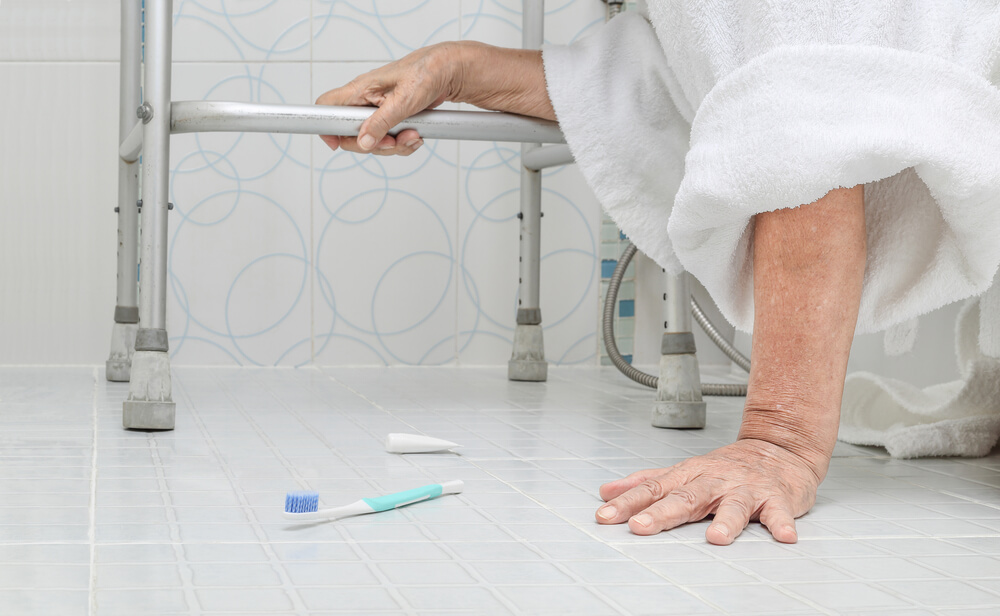
Nearly half a million people were living in care homes in the United Kingdom in 2021, according to recent figures. Given that many of these residents will be elderly, infirm or both, and the added strain placed on care homes due to the pandemic, it is little wonder that care homes are a frequent scene of accidents.
While accidents can affect care home staff, in this article Frances Woods in the personal injury team with QualitySolicitors Parkinson Wright examines common accidents that can affect care home residents and visitors.
Life expectancy of the UK public has been extended due to medical advances, and the number of people aged 65 years and over is expected to increase to around one fifth of the UK population, the highest proportion this age group has ever consisted of.
With an ageing population comes a greater propensity for accidents, and for such accidents to cause serious injuries due to brittle bones and other age-related issues.
While many accidents suffered by older people happen in the home, care homes are no exception to this, and we are seeing a growing number of care home injury compensation claims being brought for a wide variety of different injuries.
Common causes of care home accidents
Some of the most common accidents that can occur in a care home environment, according to the Care Quality Commission, include:
Slips, trip and falls
Slips, trips and falls are by far the most common kind of accident in any setting, and care homes are no exception. Many residential homes use smooth vinyl flooring which can become particularly slippery when wet and lead to an increased risk of slip accidents for residents and visitors alike.
Trailing cables, worn carpets or floor tiles, rickety stairs, debris in corridors, or inadequate lighting can all present a risk, while improper use of equipment, such as not using the safety belt on a shower chair for support, also poses a serious risk of injury.
Where residents are in a confused mental state, falls from windows are not unheard of. Windows should be installed that are too small for people to fit through or they should be fitted with a window restrictor, and window sills should not be designed to be sat on.
Fire risk from use of emollient creams
The unsafe use of emollient creams to help manage dry skin conditions, such as eczema or psoriasis, can result in serious injuries from fire. Emollients are easily transferred from skin on to clothing and bedding and when a fabric with dried-on emollient comes into contact with a naked flame, the resulting fire burns quickly and intensely.
Indeed, earlier this year BUPA was ordered to pay a fine and prosecution costs totalling more than £1 million after it pleaded guilty to breaches of the Regulatory Reform (Fire safety) Order 2005. The prosecution followed the death of a 69-year-old care home resident who died in his wheelchair while smoking unsupervised in a smoking shelter. The court found that he had been prescribed paraffin-based emollient cream, so should therefore have been provided with a smoking apron or been supervised in the shelter.
Burns from hot water or surfaces
Many people who use health and social care services may be vulnerable to injury from hot water or surfaces, often because they have reduced mental capacity, reduced mobility, or a sensory impairment, or because they cannot react appropriately or quickly enough to prevent injury.
Burns can occur if the hot water used for showers or baths is too hot because the temperature has not been regulated, or because hot pipes or radiators are left uncovered or not have been fitted with low temperature heat emitters.
Bed rails
Although used to prevent falls, bed rails can pose other risks. If they are not fitted or positioned properly, they may cause a person’s neck or limbs to become trapped between the rails and the mattress or between the gaps in the bed rails.
Choking
Choking can result in serious or fatal injuries, if for example someone suffers from dysphagia (the medical term for swallowing difficulties). If a person with dysphagia is at risk of choking, they will usually see a speech and language therapist, who should provide a plan for care staff to prepare their food and drink safely.
Duty of care
All care homes and residential facilities have a duty of care to their clients and to those who visit them. This includes an obligation to ensure:
- adequate levels of training for care home staff;
- regular health and safety assessments completed;
- equipment is checked for safety and maintained;
- care home residents are properly monitored;
- staff levels are kept at an adequate level; and
- care home accidents are reported.
If they breach this duty of care and you or a loved one are injured as a result, negligence may be found and you might have grounds to bring a personal injury claim for compensation against those responsible.
For further information, please contact Frances Woods or a member of the personal injury team on 01905 721600 or email worcester@parkinsonwright.co.uk
This article is for general information only and does not constitute legal or professional advice. Please note that the law may have changed since this article was published.
